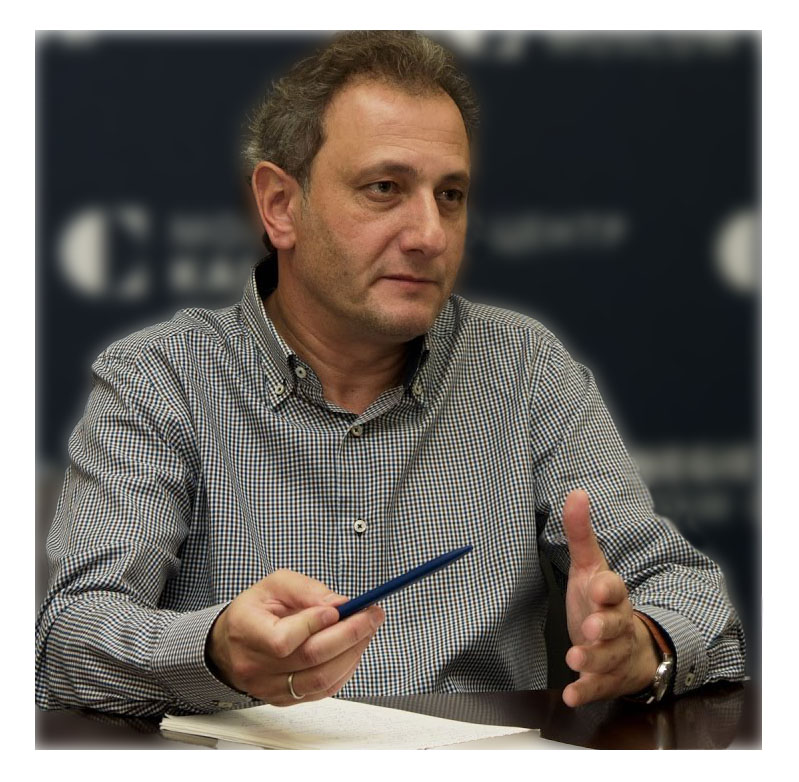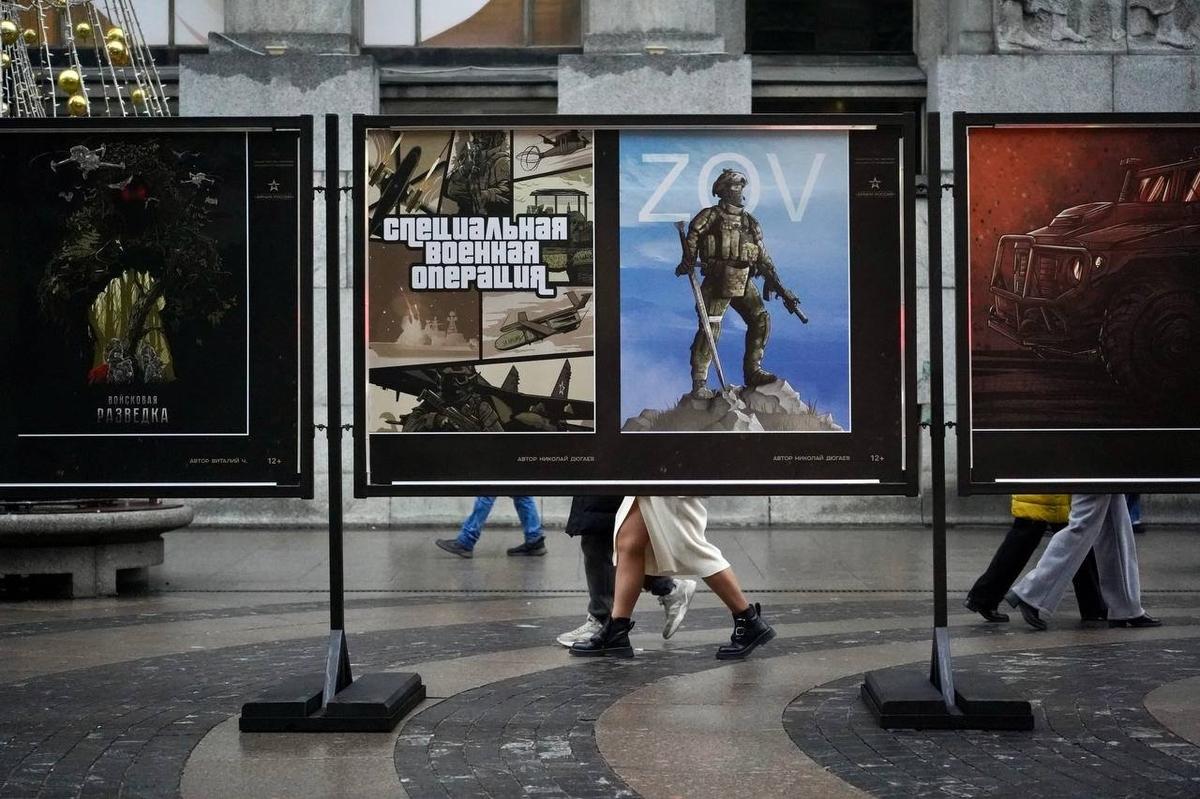 In the latest Rosstat's 'Review of the Socio-Economic Situation of the Russian Federation', the section 'Demography' has disappeared. If data disappears, it means it is very bad. The Soviet CSO fought for the 'socialist figure'. Moisey Eidelman, former director of the USSR CSO Research Institute, led the work in the early 1990s to reassess Soviet economic data from 1961–1990, conducted across more than 200 of its sectors: GNP growth during the Soviet years was overestimated by 1.7 times, national income by 2.1 times, production growth by 2 times, engineering and metallurgy by 3.2 times.
In the latest Rosstat's 'Review of the Socio-Economic Situation of the Russian Federation', the section 'Demography' has disappeared. If data disappears, it means it is very bad. The Soviet CSO fought for the 'socialist figure'. Moisey Eidelman, former director of the USSR CSO Research Institute, led the work in the early 1990s to reassess Soviet economic data from 1961–1990, conducted across more than 200 of its sectors: GNP growth during the Soviet years was overestimated by 1.7 times, national income by 2.1 times, production growth by 2 times, engineering and metallurgy by 3.2 times.
Current economic leaders (of course, not Rosstat itself, it is a subordinate agency) prefer to simply hide statistics. However, today's economists, generally having received a normal Western education (including within the country at the 'Higher School of Economics' and NES) are able to assess the state of the economy through indirect data. The same applies to demography to a certain extent. And its real state is in stark contradiction with political attitudes, some fundamentalist measures like encouraging the birth of children almost by schoolgirls and caricatured plans for mass construction of families with seven children.
Formal GDP or population income figures do not need to be adjusted — they are relatively high, but behind them are an overheated economy, unjustified wage growth in non-productive sectors like the military-industrial complex, not dependent on labor productivity, and the growth of production of 'finished metal products', stimulated by massive budget injections. And the products after these injections 'fly somewhere', according to VTB head Kostin. Expenditures on total militarization exceed the GDP share of 6-something percent, designated by Putin. Because there is also a huge share of secret expenses and social ones, directly related to the SVO.
In short, it is not difficult to guess, or rather, still find data, according to which the birth rate is falling more than it could have fallen anyway, if not for February 2022. Mortality is in a not brilliant state, and here the reliability of indicators is very low. The burden on working people to support pensioners is increasing due to population aging and the refusal to reform the pension accumulation system; the replacement rate (the ratio of pension size to salary size) continues to decline to indecent levels.
Or here's such an unexpected figure, where many things converged: as of June 1 (year-on-year), the number of wedding salons in Russia decreased by 12%. Demand is falling: 'Check Index' (Platform OFD company, fiscal data operator) showed a decrease in the number of purchases of wedding dresses and suits — in January-June by 6% year-on-year. The number of marriages is decreasing: according to Rosstat data, in Russia in 2024, 44 thousand couples got married — 7.2% less than in 2023.
Every time it is necessary to remind that for marriage, which in Russia is a union of a man and a woman, not only women are needed, but also men. The same story with the birth of children — in the absence of men, they do not appear. Demographers can quite accurately calculate how much the birth rate falls if 'our guys' are not at home, do not receive specialties, do not make life plans, do not think about marriage. But our legislators find it easier to shout about 'traditional values', scare clinics performing abortions (the number of abortions in Russia is civilized, European, and this does not constitute a problem negatively affecting the birth rate), pay state money for early pregnancy, fight with repressive methods against people of 'non-traditional' orientation. Easier than understanding the 'root causes' of low birth rates — instability, background, and for some not background combat actions, lack of prospects in the broadest sense of the word. This becomes noticeable even visually: in Moscow, there are fewer children and fewer mothers with strollers in city parks.
As for wedding salons, all the factors of that reality, which they do not want to notice either in Okhotny Ryad, or on Krasnopresnenskaya Embankment, or in the Kremlin, converged here. Not everyone decides to get married in a situation of years-long uncertainty — psychological and financial. Society is different: urbanized, striving to get an education and make a career if there is such an opportunity. Informal unions replace formal ones, but this does not affect their strength or weakness. The number of single households is growing. People, no matter how much you drive them into frameworks that contradict global trends, choose different life trajectories — this is a property of modernized societies. But this is also the most important traditional (without quotes) value — the value of human life, qualitative, rich, free. Life, not death.

Saint Petersburg, November 2024. Photo: Pavel Daisi / MR7
A person 'in the middle of the world', not a mass; individuality, not part of a crowd; an individual trajectory, not a mandatory, especially imposed from above, all-unifying mainstream. A person is not a sheep, not an infusoria. He is at the center of state policy — we open the Constitution of the Russian Federation, chapter two, 'Human and Citizen Rights and Freedoms'. Everything is written there. And these are the very 'rules' that state leaders often ask about: 'Who established them?' Answer: progressive humanity. The Russian authorities established them in 1993, and the people — the source of power, voted 'for'.
If you treat a person as a person, not a trembling and thoughtless creature, you can get the missing workforce in Russia. It is about qualified workers, who have not yet been learned to attract, although serious foreign managers and specialists continued to work in the country even after 2014 — they offered technological solutions, attracted direct investments, created high-tech jobs, produced not 'metal products', but what the consumer needs in peacetime. But they all left and will not return — only adventurers or persons close to future (if they happen at all) 'deals' between state leaders will arrive. Unskilled labor over the past ten to fifteen years could have turned into normal qualified and naturalized, adopting a modernized lifestyle. If they had not chased migrants with clubs, not driven their children out of schools, but on the contrary, integrated them into the local environment, they would have received a new generation of Russians and workers. Migrant children had a chance. And Russia had a chance. But in conditions of authoritarianism and practically official migrantophobia, such an opportunity was missed. And now the authorities are torn between stimulating birth rates and attempts to form large groups of 'blue' and 'white' collars by methods almost of violent redirection of schoolchildren to colleges, that is, former vocational schools. This is also a pernicious arrogance — as if the state knows which specialties will be in demand in the economy in 5–10 years. Especially in a situation where the economy remains structurally distorted.
This is another problem of ultra-authoritarian power: it knows everything better than everyone else, it does not need advice from outsiders. It does not need expert support, especially if the expert says something contrary to the beliefs of the leading comrade or legislator. Feedback with truly professional demographers, specialists in pension and social problems (not about accounting, but research showing trends that cannot be reversed, but can be taken into account in policy), even economists, is lost. The regime needs ideological service, it wants to hear from the expert only what it likes itself. The natural consequence: the collapse of foreign policy expertise. However, foreign policy and diplomacy themselves have been reduced to exchanging barbs with 'unfriendly' leaders. There is no expertise, real, not serving the imperial discourse, concerning the space of the former USSR. As a result — and this is just one example — the Putin regime lost the entire South Caucasus in a short period. Georgia has long been lost, the 'strategic partner' Armenia has left, essentially a hybrid war is going on with Azerbaijan. Because 'we' are the smartest, 'we' are still the most important in the imaginary empire.
But the thing is, the empire is imaginary. Its 'return and strengthening' is too expensive. And it has the opposite effect: without possessing soft power, using only hard power, you will not become attractive. Both the empire and its embalmed 'Russian Idea' will shrink to the size of a state isolated from everyone, offended by the whole world, bristling with weapons and 'traditional values'. Which will amuse itself exclusively with frequent phone conversations with the US president himself. Soon the two leaders will talk exclusively about the weather and sports...
Our leaders will continue to deceive themselves with the fulfillment of KPI of state programs and national projects, as well as official statistics, from which soon only indicators of persistently growing GDP will remain, completely unnecessary for the consumer economy.
Soviet leaders believed in the CSO figures — it was calmer that way. And statisticians continued to give the 'socialist figure': the industry had a birth trauma — the executions of the heads of the statistical department. Authoritarian and totalitarian regimes are regimes of imitations. It is easier for everyone to drive away real knowledge and brush off real problems. And, as is known since the time of academician Strumilin, it is better to stand for high growth rates than to sit for low ones.
* The Ministry of Justice of the Russian Federation considers Andrey Kolesnikov a 'foreign agent'.